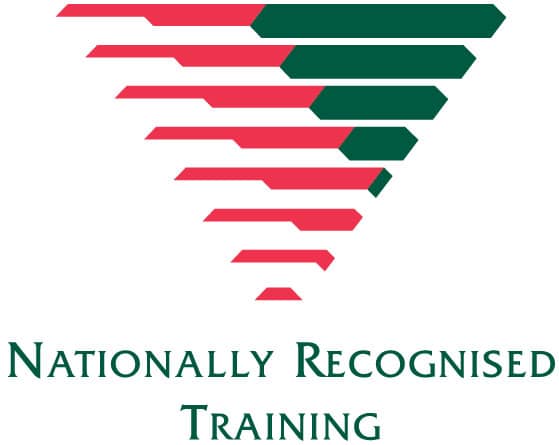
RTO CODE 45542
COURSE ENROLMENTS NOW OPEN
Cert IV Videos
What is an Allied Health Assistant?
Allied Health Assistants work as part of a multidisciplinary team under the guidance and supervision of allied health professionals. Allied Health Assistants can work in one specialty area, or work across the different allied health professions, including:
- Physiotherapy
- Occupational Therapy
- Dietetics
- Podiatry
- Speech Pathology
The Allied Health Assistance workforce is expanding with the Certificate IV in Allied Health Assistance being identified as the qualification best aligned to allied health assistant roles within organisations such as State funded health organisations and Residential Aged Care Facilities.
Career and Education Pathways
This course provides you with the qualifications to work as an Allied Health Assistant in a interdisciplinary allied health team, or as a profession-specific assistant in your chosen elective specialisation (for example, a Occupational Therapy Assistant).
If you wish to pursue tertiary studies, RuralMedEd have an arrangement in place with the University of Southern Queensland (UniSQ), where you can receive credit for up to 2 units of study in selected degrees. Further information can be obtained by contacting RuralMedEd.
Course Description
The course is nationally recognised training with RuralMedEd (RTO code 45542) delivering HLT43021 Certificate IV in Allied Health Assistance and will give you the practical skills and knowledge to work as part of a multidisciplinary healthcare team.
You will learn:
- The role of an Allied Health Assistant and how they contribute to the health and wellbeing of patients
- How to communicate in a healthcare setting
- How to work safely in a healthcare setting
- How to interpret and use medical terminology
- How the body works
- How to monitor a patient’s progress
- How to perform tasks that are frequently delegated to Allied Health Assistants
- How to screen patient’s physical, mental and cognitive status
- How to support patients in a treatment program
- Specialised skills in speech pathology and other allied health areas such as occupational therapy, dietetics, podiatry and exercise physiology
A work based practical placement will support you to practice your skills in a workplace setting.
Who should apply for this course?
- Current HSAs (PSAs) working in healthcare (these applicants may be eligible for recognition of prior learning)
- People who currently do not work in a health care setting but are interested in obtaining a qualification to help them enter the industry
- High school students interested in a healthcare career
Course Details
| Course Code | HLT43021 | |
|---|---|---|
| Expected Duration | 12 months full time, or 18 months to 2 years for high school students | |
| Total Course Cost | $9,600 (check to see if you are eligible for any of our scholarships) | |
| Study Locations | Toowoomba (for Face to Face training days) | |
| Course Content |
Domestic Students: online learning and assessment , webinars and face-to-face practical sessions, 120 hours industry placement High School Students: 1 day a week in-person training during school terms, 120 hours industry placement |
Core Units |
||
|---|---|---|
| BSBMED301 | Interpret and apply medical terminology appropriately | |
| CHCCCS020 | Respond effectively to behaviours of concern | |
| CHCCCS036 | Support relationships with carer and family | |
| CHCCCS038 | Facilitate the empowerment of people receiving support | |
| CHCDIV001 | Work with diverse people | |
| HLTAHA027 | Assist with an allied health program | |
| HLTAHA047 | Engage with clinical supervision and delegation | |
| HLTAHA049 | Recognise impact of health conditions | |
| HLTINF006 | Apply basic principles and practices of infection prevention and control | |
| HLTWHS002 | Follow safe work practices for direct client care | |
Elective Units |
|
|---|---|
| All students complete both the mandatory and the Communication & Swallowing Support electives. Students may then select three electives in any area of interest. | |
Mandatory Electives | |
| HLTAID009 | Provide cardiopulmonary resuscitation |
| CHCDIV002 | Promote Aboriginal and/or Torres Strait Islander cultural safety |
Communication & Swallowing Support | |
| HLTAHA034 | Support the development of speech and communication skills |
| HLTAHA035 | Provide support in dysphagia management |
| HLTAHA036 | Assist and support the use of augmentative and alternative communication systems |
Movement & Mobility Support | |
| CHCCCS002 | Assist with movement |
| HLTAHA028 | Deliver and monitor physical or manual therapy programs |
| HLTAHA032 | Support maintenance of functional status |
Nutrition & Dietetic Support | |
| HLTAHA039 | Assist in the development of meals and menus to meet dietary and cultural requirements |
| HLTAHA040 | Assist with the monitoring and modification of meals and menus according to individualised plans |
| HLTAHA042 | Assist with screening and management of nutritional risk |
Podiatry Support | |
| HLTAHA030 | Assist with basic foot care |
| HLTAHA050 | Assist with podiatry exercise |
| HLTAHA051 | Assist with podiatric procedures |
Exercise Physiology | |
| SISFFIT040 | Develop and instruct gym-based exercise programs for individual clients |
General Electives | |
| CHCAGE011 | Provide support to people living with dementia |
Assessment
Includes:
- online quizzes
- written assessment
- simulation activities
- Industry placement logbook
- Work samples
Practical Placement
You are required to complete 120 hours of compulsory practical placement in a workplace where health services are delivered by allied health professionals. During your placement, you will work under the supervision of an allied health professional, or an experienced Allied Health Assistant to provide allied health support to patients, document in medical records and communicate with the healthcare team.
Through RuralMedEd’s strong partnerships with the healthcare industry, you will have access to a range of placement opportunities, including private hospitals, Residential Aged Care Facilities, and private allied health professionals.
Although RuralMedEd will attempt to find a placement that fits with your work and family commitments, you may be required to manage your schedule in order to commit to the placement requirements. Travel may be required.
Unless otherwise organised, placements will be offered in a full-time block of 40 hours per week for three consecutive weeks after completion of your study.
If you are currently employed in the healthcare sector, please discuss the possibility of completing your placement at your current workplace with our Course Coordinator.
Eligibility Requirements
Knowledge and skill requirements
It is recommended that students:
- are aged 17 or older at the course commencement date; or
- have language, literacy and numeracy skills equivalent to Year 12; or
- have a nationally recognised qualification at the Certificate II level or higher; or
- experience working in the healthcare sector.
Technology skills and equipment
All students will require the following technological equipment to complete the online training:
- a computer and internet connection
- software to view online videos and images. Students will need to possess computer skills including being able to create, download, scan and upload documents, navigate an online learning platform, send and receive emails and search for resources using web based search engines.
Your Commitment
In order to participate in the course, you are required to commit to the following:
- Attend the nominated face to face sessions
- Complete the online training within the required timeframes
- Complete the practical tasks provided, including:
- Standing, bending and kneeling on the floor
- Lifting light items
- Working being in a healthcare environment with patients who may have illness and injury
- Complete the 120 hour practical placement.
Placement requirements
The Working with Children Check (Blue Card Application)
A Blue Card must be provided by all students on enrolment. If you do not have a current Blue Card, go to http://www.bluecard.qld.gov.au
Disability Worker Screening Clearance (Yellow Card Application)
A Yellow Card must be provided by all students on enrolment. If you do not have a current Yellow Card, go to https://workerscreening.dsdsatsip.qld.gov.au/workers/you-start
National Police Certificate
A National Police Certificate must be provided by all students on enrolment. Go to the Queensland Police website to download an application form.
Please contact RuralMedEd if you have a notification or criminal history that appears on your certificate as this may affect your eligibility to complete the industry placement.
Immunisation
It is an RuralMedEd requirement that all health students are immunised or vaccinated against Hepatitis B, Varicella (Chicken Pox), Measles, Mumps, Rubella, Diphtheria, Tetanus, Pertussis, Seasonal Influenza, and COVID-19. Your immunisation and vaccination history will need to be certified by a general practitioner (GP).
RuralMedEd will provide you with a certification document for your GP to complete.
Course Trainers
RuralMedEd specialises in providing trainers and assessors with experience delivering allied health services to patients in rural healthcare services, including hospital, community, disability and private practice environments. In addition to their professional qualifications, all trainers and assessors are required to possess further qualifications in training and assessment.
Further Information
Please contact us at rtosupport@ruralmeded.org.au or phone 07 4638 7999 for advice relating to you enrolment application.




